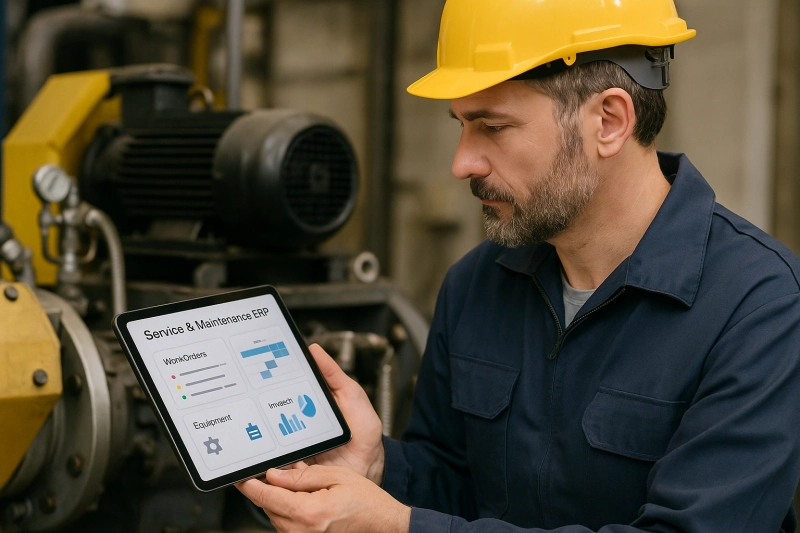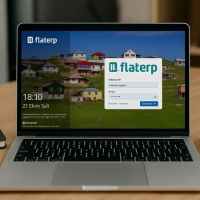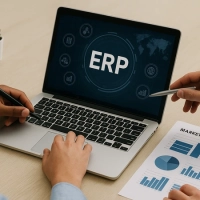
Servis ve bakım sektörü, günümüz ekonomisinin en kritik alanlarından biridir. Üretim tesislerinden otomotive, sağlık hizmetlerinden enerjiye kadar birçok sektörde makine, cihaz veya altyapının kesintisiz çalışması büyük önem taşır. Bir üretim hattının arızalanması, planlı bakımın gecikmesi ya da teknik destek süreçlerinde yaşanan aksamalar hem müşteri memnuniyetini hem de şirketlerin kârlılığını doğrudan etkiler.
Bu noktada ERP (Kurumsal Kaynak Planlama) sistemleri devreye girer. Özellikle FlatERP, servis ve bakım sektörüne özel geliştirdiği modüllerle şirketlerin operasyonel yükünü hafifletir, süreçleri uçtan uca dijitalleştirir ve rekabet avantajı sağlar.
Bu yazıda, servis ve bakım sektöründe ERP kullanımının faydalarını, FlatERP’nin sunduğu çözümleri ve başarılı bir uygulama için gereken stratejileri detaylı olarak inceleyeceğiz.
Servis ve Bakım Sektöründe Yaşanan Temel Zorluklar
ERP’nin değerini anlamak için öncelikle bu sektörün yapısal sorunlarına bakmak gerekir:
- Dağınık bilgi yönetimi: Arıza kayıtları, bakım planları, müşteri talepleri ve stok bilgileri farklı sistemlerde tutulduğunda verimlilik düşer.
- Saha ekiplerinin takibi: Teknisyenlerin görev dağılımı, sahadaki işleri ve raporlama süreçleri manuel yöntemlerle yönetildiğinde hatalar artar.
- Planlı bakım aksaklıkları: Excel ya da kâğıt tabanlı sistemlerle bakım planlamak, gecikmelere ve beklenmedik arızalara yol açar.
- Stok ve yedek parça yönetimi: Kritik parçaların tükenmesi, yanlış stok kayıtları veya tedarikte gecikmeler iş sürekliliğini bozar.
- Müşteri memnuniyeti sorunları: Yavaş çözümler, faturalandırmadaki hatalar veya iletişim eksiklikleri müşteri deneyimini zedeler.
FlatERP, bu sorunların tamamını çözmek için kapsamlı modüller sunar.
FlatERP’nin Sektöre Sağladığı Temel Avantajlar
1. Merkezi Veri Yönetimi
FlatERP, müşteri, cihaz, bakım geçmişi ve stok bilgilerini tek bir platformda toplar. Böylece hatalı veya eksik bilgi riski azalır, yöneticiler kararlarını güvenilir verilere dayandırabilir.
2. İş Emri ve Bakım Planlaması
Arıza çağrıları FlatERP üzerinden iş emrine dönüştürülür, teknisyen atanır ve süreç uçtan uca izlenir. Planlı bakımlar ise otomatik takvime işlenir.
3. Mobil ERP ile Saha Gücü
Teknisyenler, sahadayken FlatERP mobil uygulaması sayesinde iş emirlerini görüntüleyebilir, rapor girebilir, fotoğraf ekleyebilir ve müşteri onayı alabilir.
4. Stok ve Yedek Parça Yönetimi
FlatERP’nin depo yönetimi modülü sayesinde hangi parçanın nerede olduğu anında görülebilir. Minimum stok seviyeleri tanımlanarak tedarik süreçleri otomatik başlatılabilir.
5. Müşteri Memnuniyeti ve CRM Entegrasyonu
FlatERP, CRM entegrasyonu ile müşteri taleplerini kayıt altına alır, geçmişi görüntüler ve faturalandırmayı şeffaflaştırır.
6. KPI ve Raporlama
Müdahale süresi, ilk çözüm oranı, teknisyen verimliliği gibi kritik performans göstergeleri FlatERP raporlama ekranında izlenebilir.
FlatERP’nin Sektöre Özel Modülleri
- Servis Yönetimi: Arıza kaydı, iş emri oluşturma, teknisyen atama, SLA takibi.
- Bakım Yönetimi: Planlı bakım takvimleri, otomatik bildirimler, bakım geçmişi takibi.
- Mobil Servis Uygulaması: Teknisyenlerin sahada fotoğraf ekleme, iş emri kapatma, müşteri onayı alma süreçlerini kolaylaştırır.
- Stok ve Depo Yönetimi: Yedek parçaların doğru zamanda doğru yerde bulunmasını sağlar.
- CRM ve Finans Entegrasyonu: Müşteri ilişkileri ve faturalama süreçlerinin sorunsuz yürütülmesini sağlar.
FlatERP ERP Uygulamasında Başarı İçin Stratejiler
- Saha ekiplerini sürece dahil edin. Kullanıcı deneyimi adaptasyon için kritiktir.
- Mobil çözümlere öncelik verin. Servis sektöründe mobil ERP olmadan başarı sağlamak zordur.
- KPI’ları düzenli ölçün. FlatERP’nin raporları sayesinde performansı takip etmek mümkündür.
- Eğitim ve destek sağlayın. Kullanıcıların sistemi benimsemesi için düzenli eğitim şarttır.
- Aşamalı geçiş yapın. Kritik modüllerle başlayıp sistemi genişletmek en doğru yöntemdir.
Farklı Sektörlerden Örnekler
- Enerji sektörü: Trafo ve jeneratör bakımlarında FlatERP ile iş emirleri otomatik açılır, saha ekipleri mobil uygulama üzerinden süreçleri yönetir.
- Otomotiv sektörü: Yetkili servisler, bakım geçmişini FlatERP üzerinden takip ederek müşteri memnuniyetini artırır.
- Sağlık sektörü: Tıbbi cihazların düzenli bakımı FlatERP’nin planlı bakım modülü sayesinde aksatılmadan yapılır.
FlatERP ile Gelecek: Yapay Zeka ve IoT
FlatERP, gelecekte IoT sensörleri ve yapay zeka ile çok daha güçlü hale gelecek.
- Sensörler makinelerden veri toplayacak,
- Yapay zeka olası arızayı önceden tahmin edecek,
- FlatERP otomatik bakım emri açacak.
Bu sayede reaktif değil, proaktif bakım yönetimi mümkün olacak.
Sonuç
Servis ve bakım sektöründe yaşanan zorluklar, FlatERP’nin sunduğu ERP çözümleriyle aşılabilir. İş emirleri, stok takibi, mobil saha yönetimi ve müşteri ilişkileri tek bir platformda birleşir.
FlatERP, servis ve bakım şirketleri için sadece bir yazılım değil, sürdürülebilir büyüme ve rekabet avantajı sağlayan stratejik bir iş ortağıdır.
























